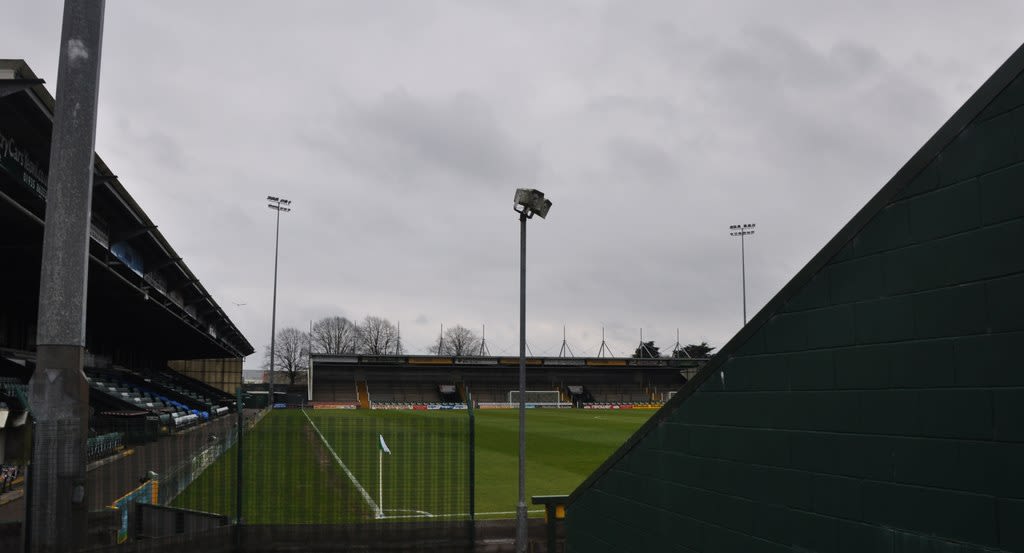Yeovil Town FC:
A Football League rise and demise
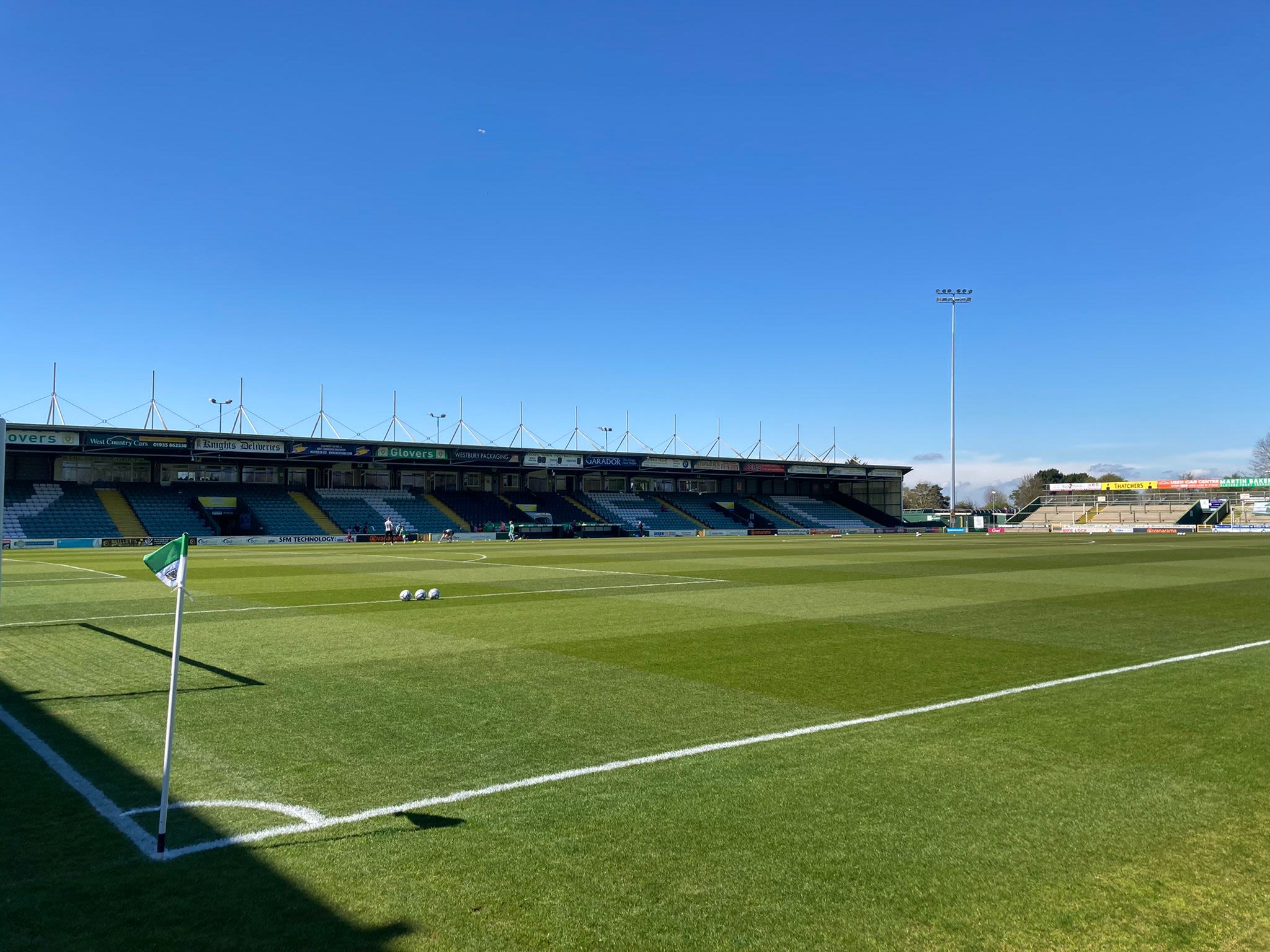
In 1997 Yeovil Town FC were playing in the Isthmian League, the sixth tier of English men’s football, and 16 years later they reached the Championship and locked horns with some of England’s footballing giants.
Now, in 2022, the Somerset club are just one tier higher than they were in 1997 after a rollercoaster journey into and out of the EFL.
The Glovers have spent all but 16 of their 126 years in non-league football, but when they spent eight consecutive seasons in League One it seemed like they would be a comfortable EFL side.
However, following their meteoric rise from non-league to the lofty heights of the second tier, the plummet back to the Conference was even quicker.
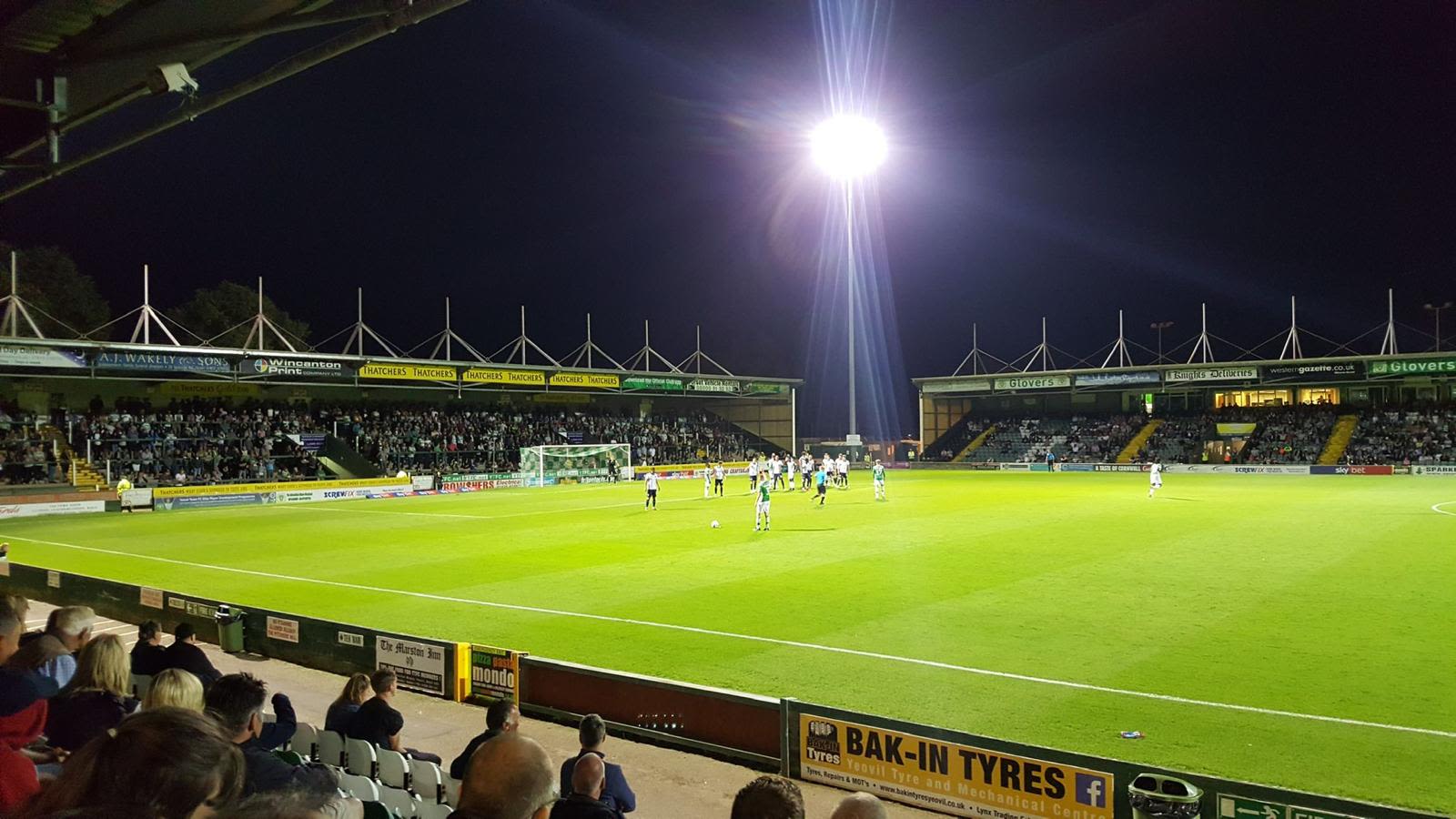
2002-2005
Four seasons, three trophies
"Huish Park just felt like a place to be."
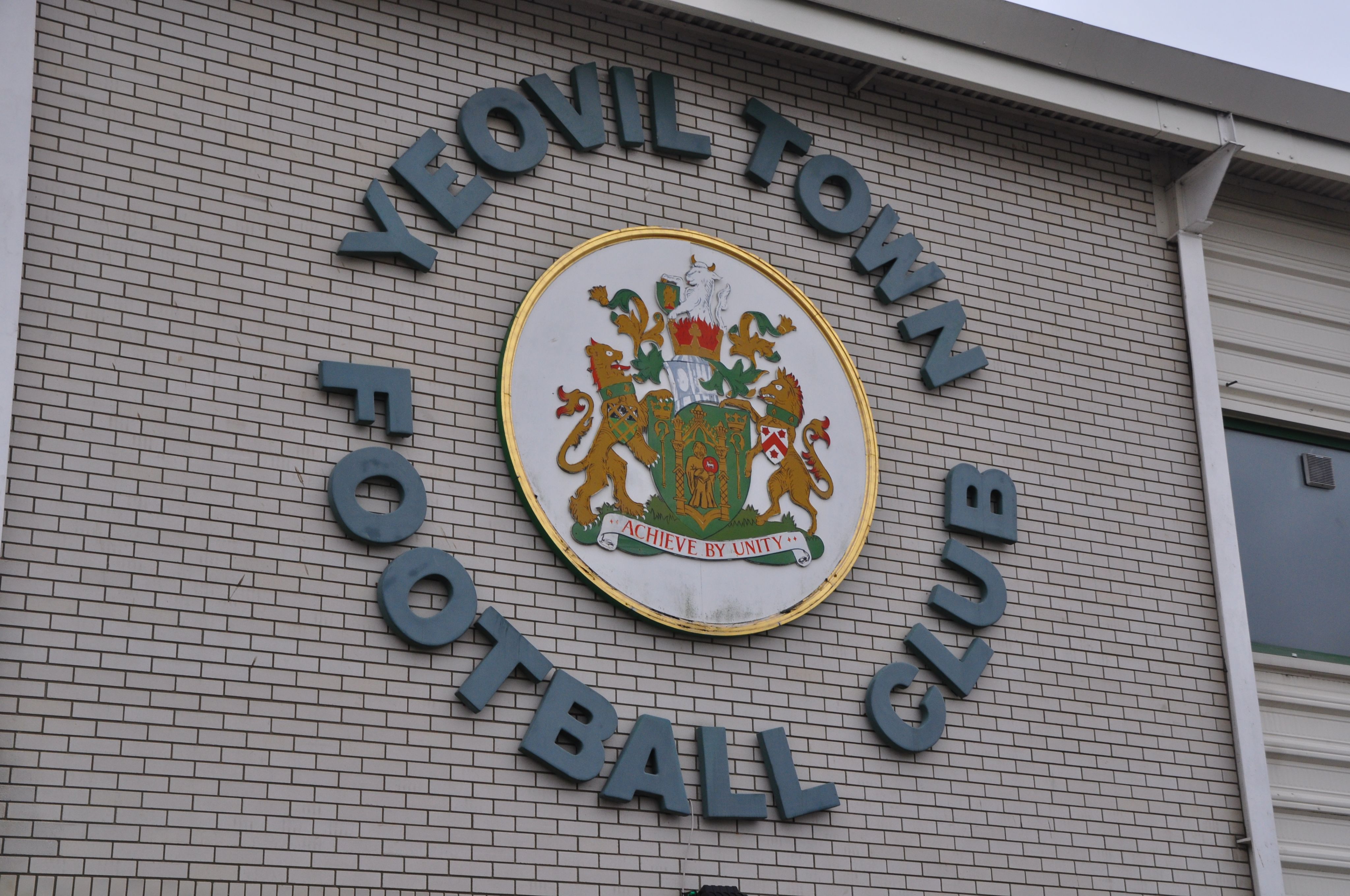
When the millennium arrived, Yeovil were knocking on the door of the Football League and were just missing the final piece of the puzzle after finishing fifth, seventh and second in successive seasons.
In 2001 a Gary Johnson-shaped piece arrived, as he swapped managing Latvia’s national team for taking charge of Somerset’s only professional club.
Johnson guided the Glovers to a third place finish in his maiden season, but more importantly his side won silverware after a 2-0 FA Trophy final win at Villa Park over Stevenage.
This instilled two crucial things into Yeovil Town Football Club: a winning mentality among the players, and an excitement within the fan base.
Ben Barrett, co-host of the Gloverscast podcast, fell in love with the green and whites at Villa Park on that day in 2002 and, like many others, started to attend more regularly and sensed something special happening.
He said: “Over the next few years, suddenly Huish Park just felt like a place to be. Of course, at the time the team was flying, so you knew you were going to see wins, you knew you were going to see goals and it was always going to be worthwhile. To have, at times, six or seven thousand people around you going nuts was always going to be something to look forward to.”
And something special did happen.
Johnson guided Yeovil to a record-breaking conference season, winning the league by 17 points and scoring 100 goals in the process. Crucially, it meant Yeovil had reached the Football League for the first time after 108 years of steadily working their way through non-league.
It didn’t stop there either. With the same core of players, Yeovil finished eighth in their maiden Football League season before becoming champions of League Two to earn a second promotion in three unforgettable seasons.
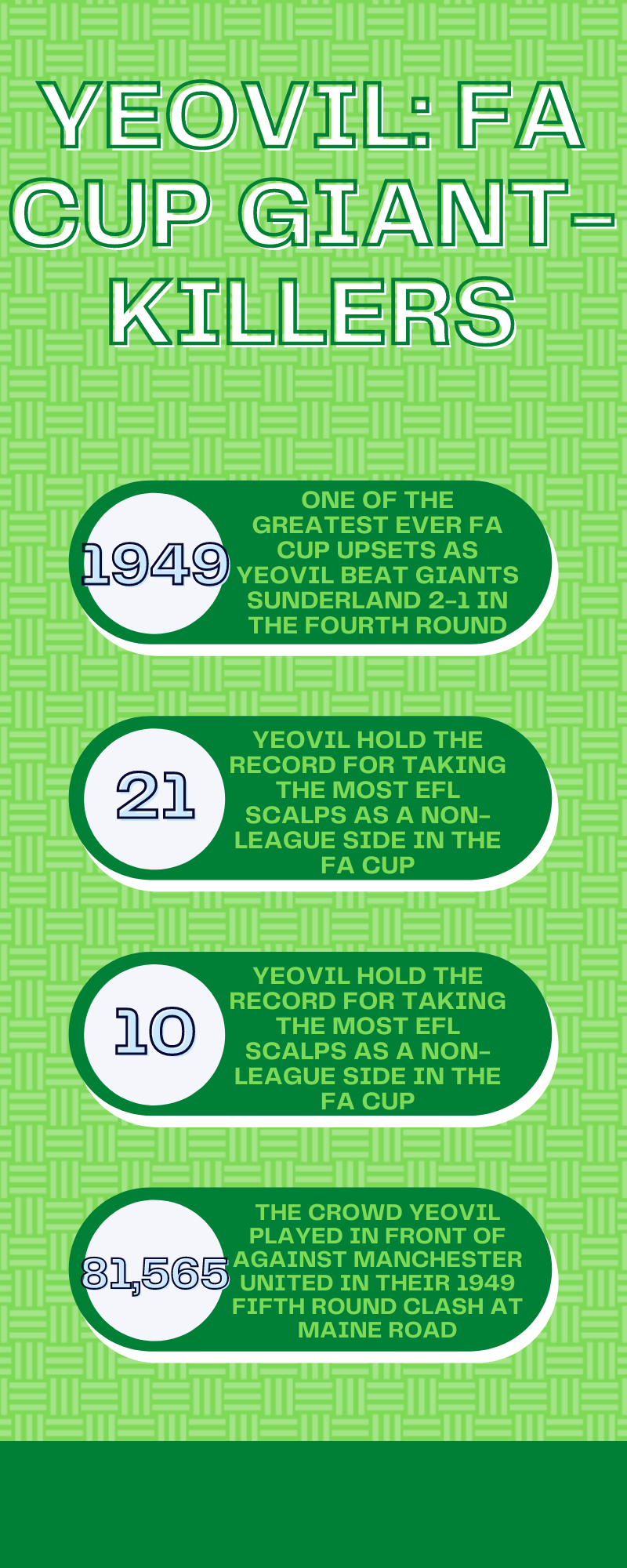
2005-2012
Deforestation amongst League One stability
"This plucky underdog that nobody had heard of a few years ago were going to put them out."
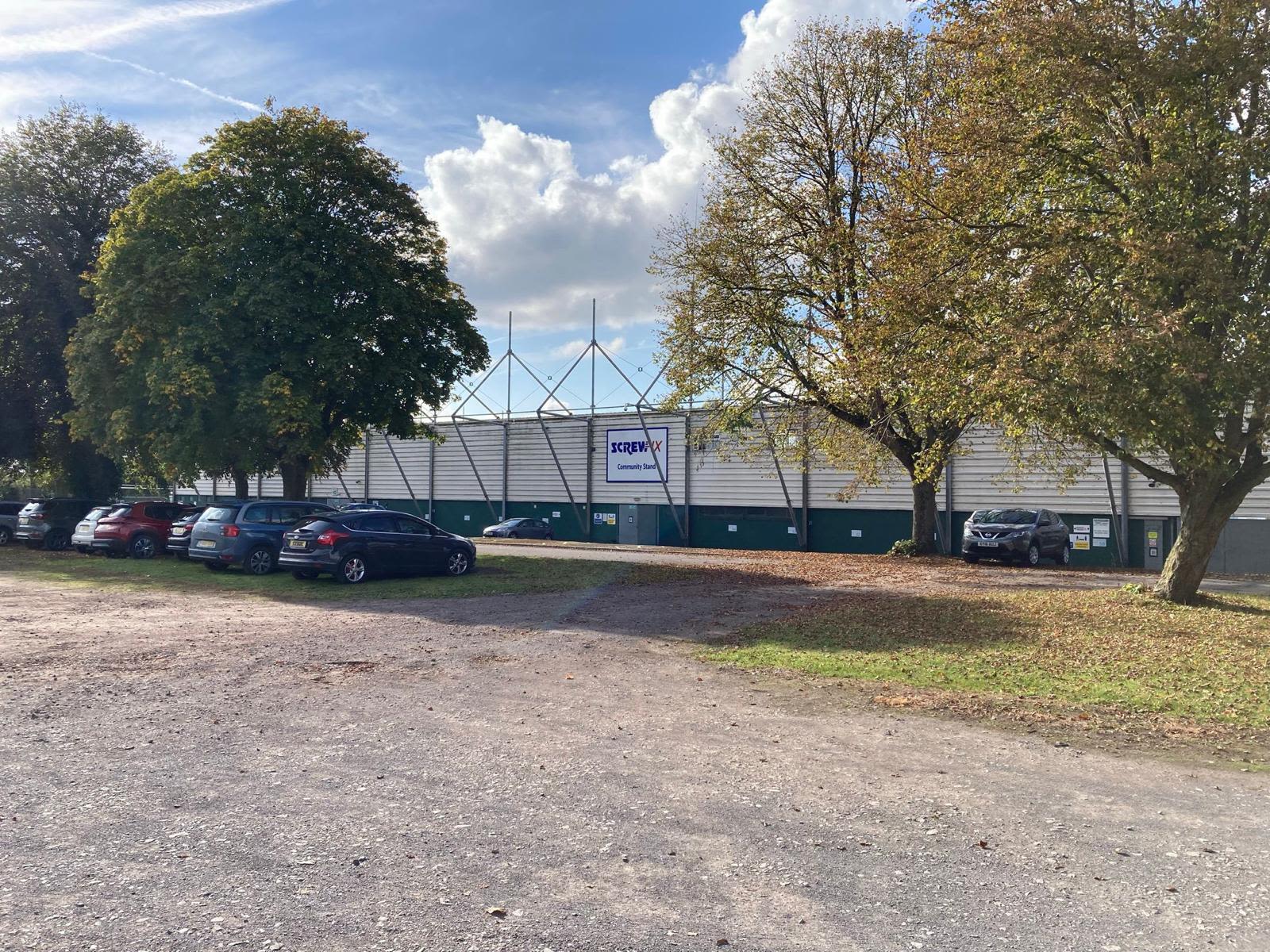
Yeovil Town had now seemingly eased their way to the third tier under Johnson, but as is customary when a club is overachieving, he was poached by local rivals Bristol City.
The Glovers’ first season in League One resulted with a respectable 15th place finish, but in the 2006-07 season, only their second at this level, Yeovil once again defied the odds and finished fifth under Russell Slade, therefore qualifying for the play offs.
Yeovil were drawn against two-time European Cup winners Nottingham Forest in the play-offs. This was no random cup draw though. Yeovil had finished the league season just three points behind the sleeping giants and earnt their right to have a shot at Championship promotion.
The first leg ended in a nervy 2-0 loss at Huish Park and Forest thought that they already had one foot in the Wembley final. In fact, Forest were so confident they could hold onto their 2-0 lead at home that they had already begun planning the travel arrangements to Wembley and measuring the players’ suits for the final.
It ended up being one of the worst nights in history for Forest fans, and one of the best for the 1097 travelling Yeovil fans.
The scores were level at 1-1 (3-1 on aggregate) with nine minutes remaining, but an Alan Wright own goal and a Marcus Stewart header impossibly levelled things up for Yeovil to bring it to extra time.
Both sides notched early extra time goals leaving the aggregate score level at 4-4 until the 109th minute when Arron Davies fired in to give Yeovil a famous win and send the Glovers to Wembley for the first time.
Commentary of Lee Morris' extra time winner vs Nottingham Forest
The 27,000 Forest fans were stunned at what had just happened, as were the Yeovil fans, but for wholly different reasons.
Barrett, who was at the City Ground that night, said:
“However many tens of thousands expectant people on that night by the side of the River Trent all turned and suddenly realised that this plucky underdog that nobody had heard of a few years ago were going to put them out and stop them getting promoted again.”
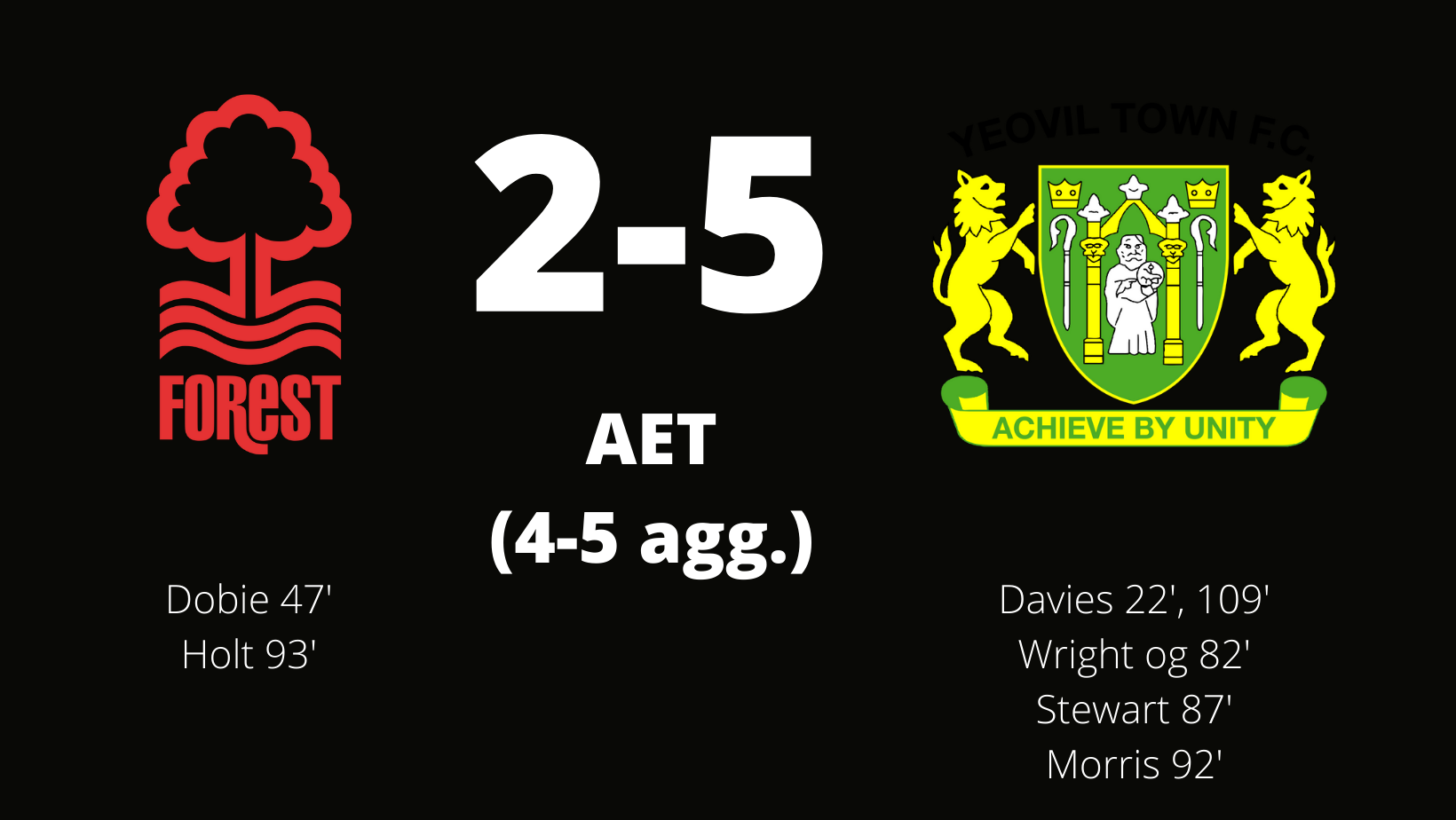
It didn’t end in complete joy for Yeovil however, as they lost 2-0 at Wembley to Blackpool who found themselves in the Premier League just three years later.
After that memorable season, Yeovil became a stable League One side under both Slade and club legend Terry Skiverton. They finished between 14th and 18th every season and seemed at home in the third tier and were now part of the furniture.
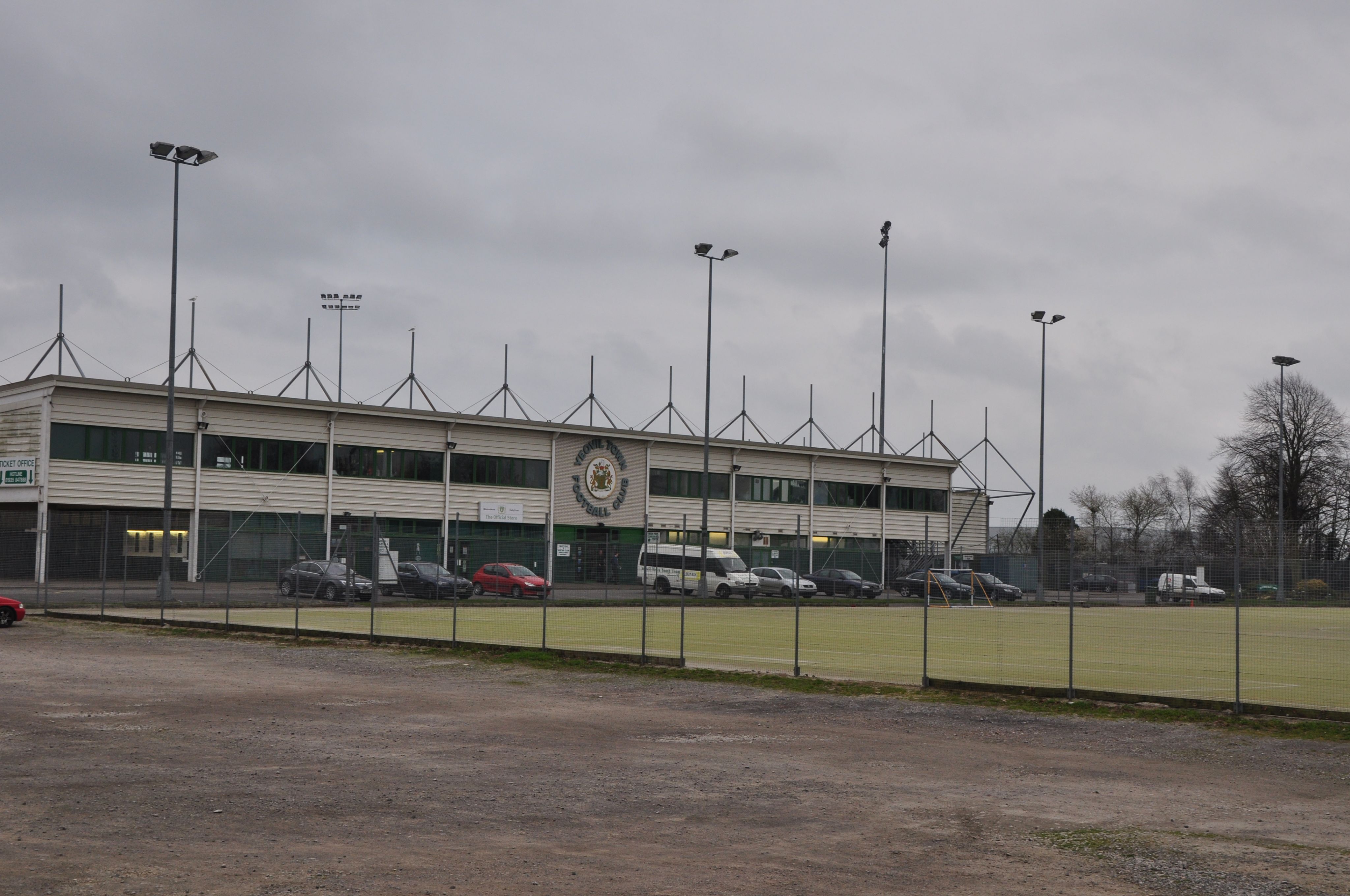
2012-2014
The impossible
"I couldn’t believe what was going to happen ahead of us."
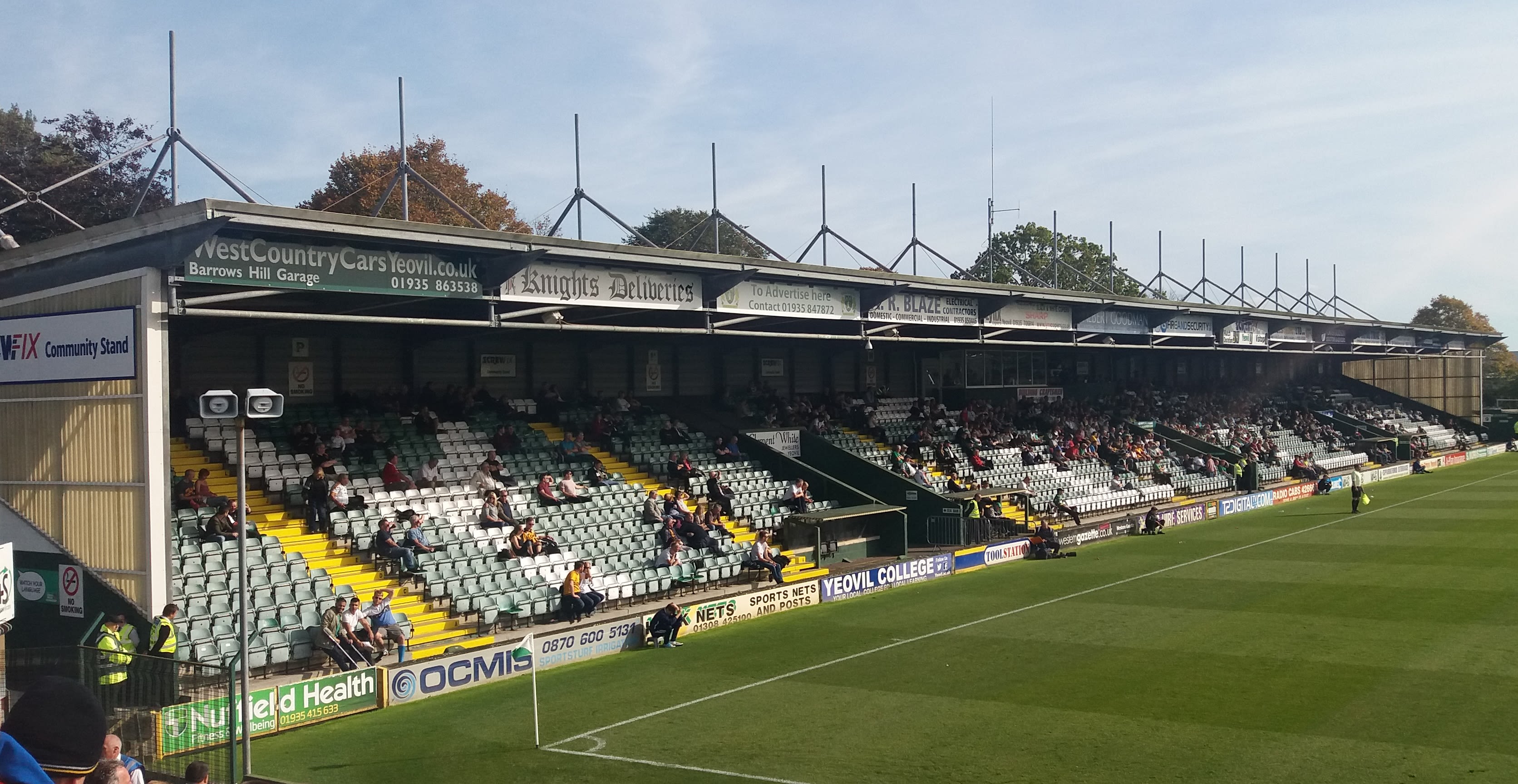
In early 2012, Johnson made a return to south Somerset to help the Glovers avoid relegation which he duly did and went way beyond any expectations the following season.
In his first full season back in charge, Johnson achieved the impossible with the Glovers and won promotion to the Championship.
Yeovil finished in fourth, setting up a play-off semi-final against Sheffield United. Despite losing the first leg 1-0 at Bramall Lane, there was a confidence that Yeovil could get a result at Huish Park.
An early goal to level the tie from Kevin Dawson made for a tense affair, until Ed Upson headed in with five minutes remaining to send fans onto the pitch and the Glovers to Wembley.
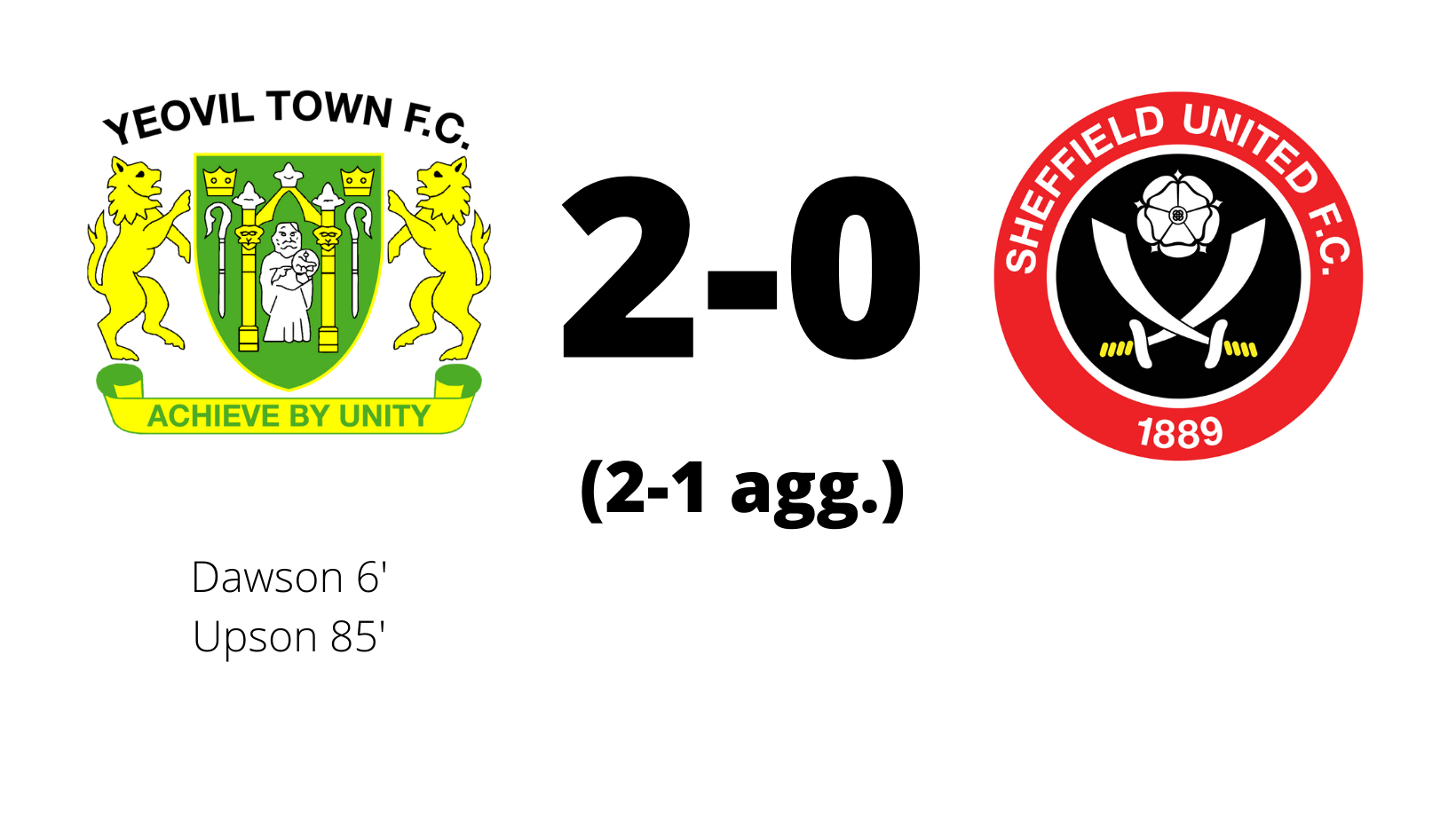
Commentary of Ed Upson's late winner vs Sheffield United
Yeovil were outplayed by Brentford in the final, with the Bees creating chance after chance, but Yeovil’s first-half goals from Paddy Madden and Dan Burn were enough for the Glovers to seal an improbable promotion to the second tier of English football.
Barrett said: “When it happened, I just sat down and cried. I couldn’t believe what was going to happen ahead of us. I remember heading back down to Somerset and almost being silent in the car, not quite able to digest what had just happened. You see other people singing and going nuts, but I was just sat there exhausted, silent thinking: ‘we really are going to the Championship’.”
Yeovil's Championship promotion commentary
So Yeovil, promoted from non-league for the first time ever just ten years previously, were now one league below the Premier League.
With no expectations, Yeovil almost had a free pass at the Championship season in 2013-14, but ultimately, that might be where the downfall began.
Barrett said: “This is, unfortunately, where the view of ‘Little old Yeovil Town Football Club’ has cost us. I thought we might be the first club to finish 25th in a 24 team division – I thought we could be that far cut adrift. Of course, we weren’t at all.”
In actual fact, Johnson’s Glovers finished just seven points from safety, although throughout the whole season relegation felt like an inevitability. Yeovil had some memorable days in that Championship season, but lacked the consistency to avoid a 24th place finish which saw them relegated back to League One.
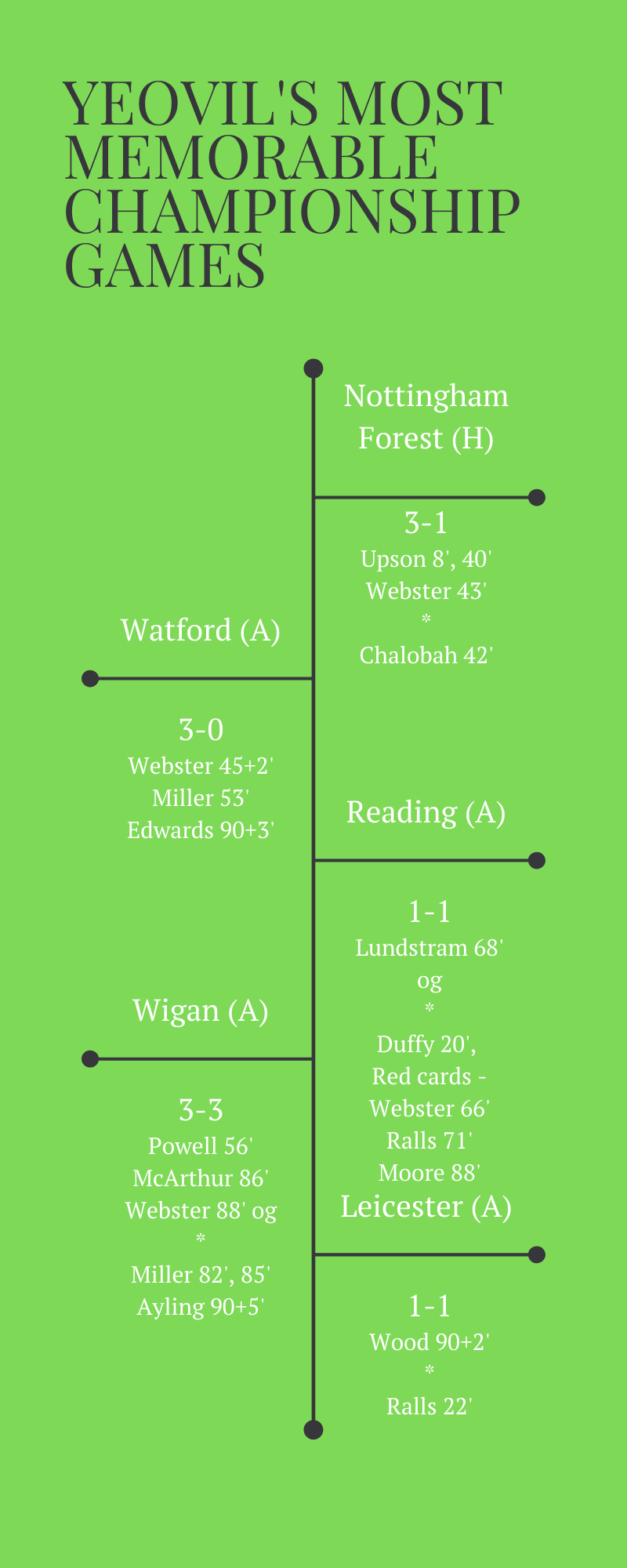
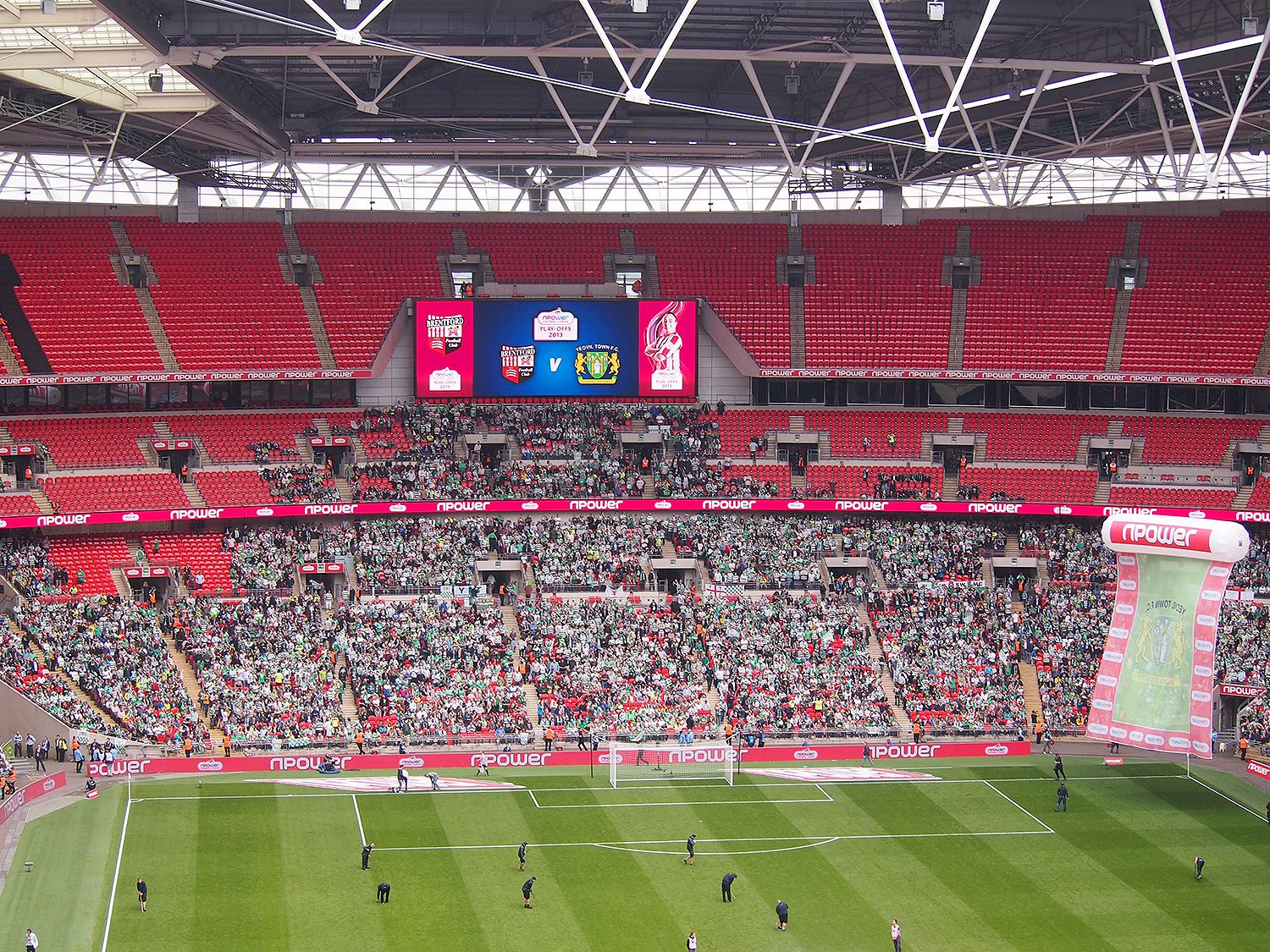
2014-2019
Freefall
"It was a ticking time bomb unfortunately."
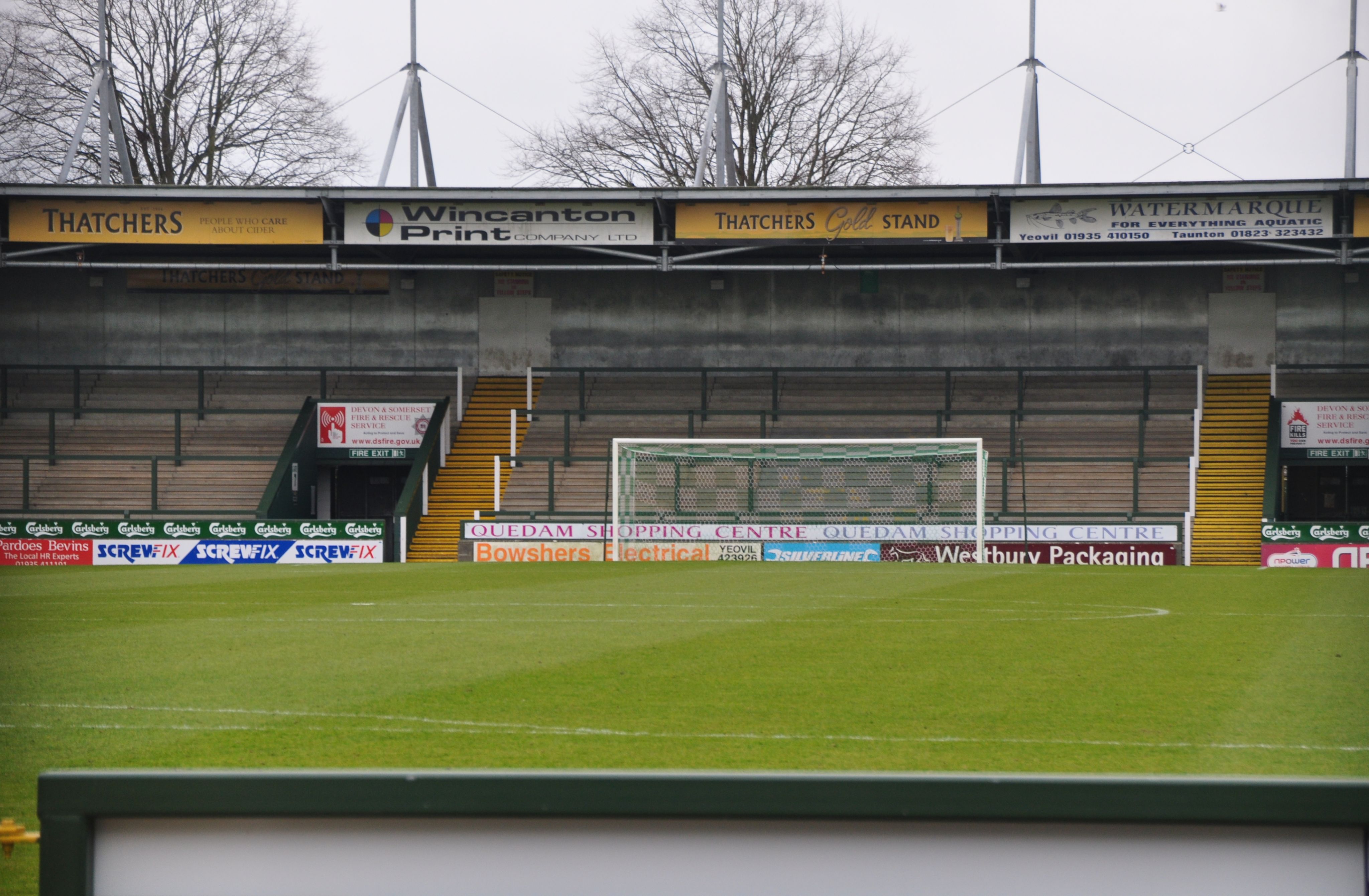
Barrett said: “The hope was that we were prepared off the pitch to bounce back and be in a position to use what we’d gained in terms of experience and finances wisely.
“For maybe the only time in his Yeovil career, Gary Johnson couldn’t reform that squad again. And it was tough, it was really tough.”
Yeovil lost the majority of their core squad that had won promotion to and played in the Championship. Many players saw their futures in that division and opted to leave the club, leaving Johnson with an enormous rebuild.
While Yeovil were comfortable in League One for the eight seasons prior to Championship promotion, in the 2014-15 season they struggled badly, finishing bottom for the second consecutive season.
Yeovil suddenly fell into League Two and started their return to the fourth tier badly and it looked as though a third successive relegation might be on the cards.
Darren Way, who was a key player in the Conference and League Two winning side, was appointed manager and galvanised the squad to avoid the drop in 2015-16.
However, things didn’t improve and Yeovil battled relegation in League Two for four seasons finishing 19th, 20th, 19th and eventually 24th.
Years of hard work to transform Yeovil from a traditional non-league club to a Football League club were undone and their fate was sealed at Northampton in 2019 as they were held to a 2-2 draw, despite being 2-0 up which would have given them a good chance of survival.
Barrett said: “It was a ticking time bomb unfortunately. We had such a high turnover of players for multiple reasons and when you have that you have a lot less unity of the groups. It all spiralled out of control and finally it cost us.
“It summed us up because we were two nil up on the day and we just had to keep winning. But we couldn’t do it. It summed up years of doing all the work, getting in a great position and then throwing it away. It summed up Yeovil for the last five years in about 85 minutes.”
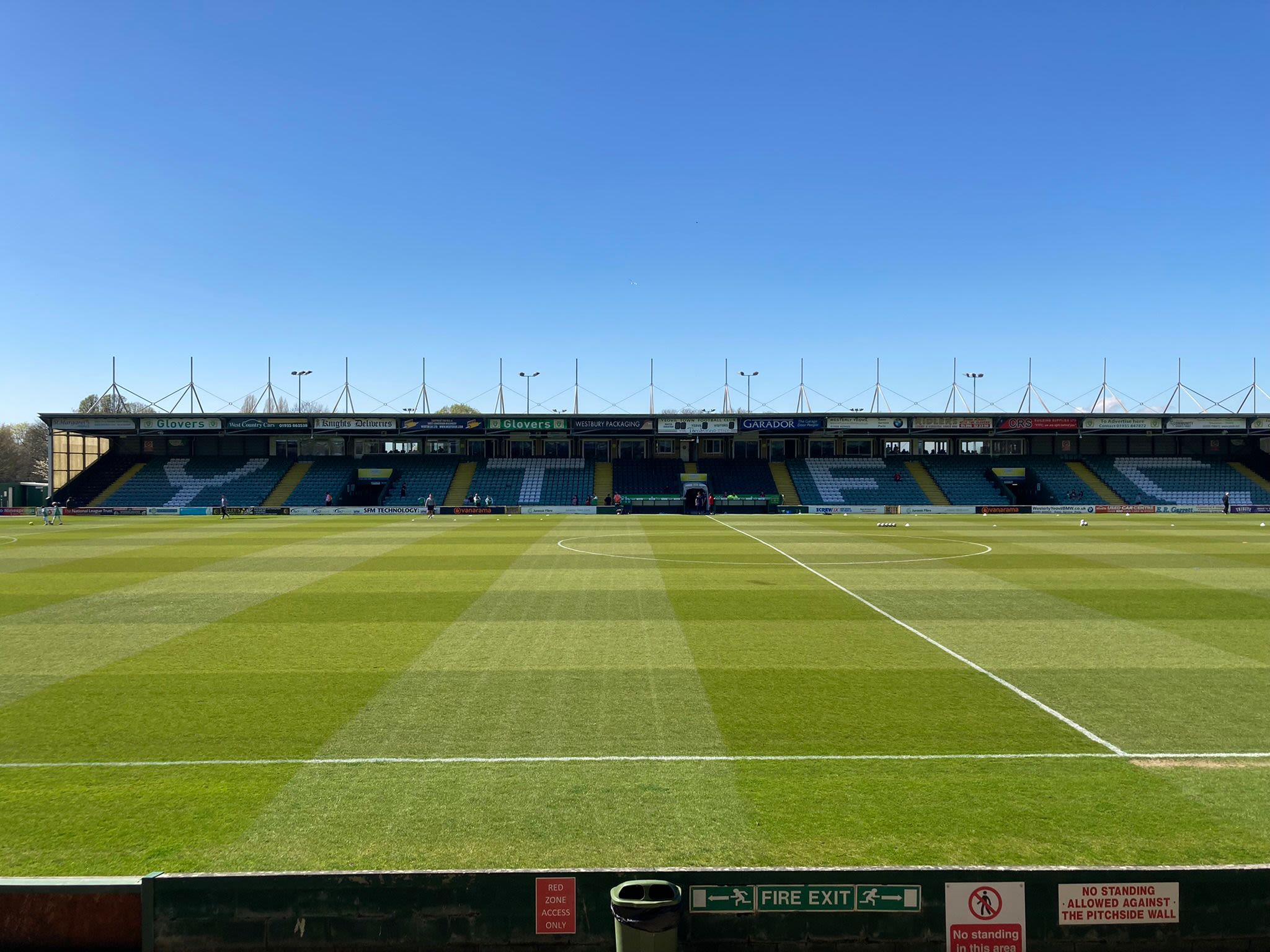
2019-...
Reset
"In terms of the bricks, the mortar, the history books, the honours board and the Hall of Fame history, it’s a Football League club."
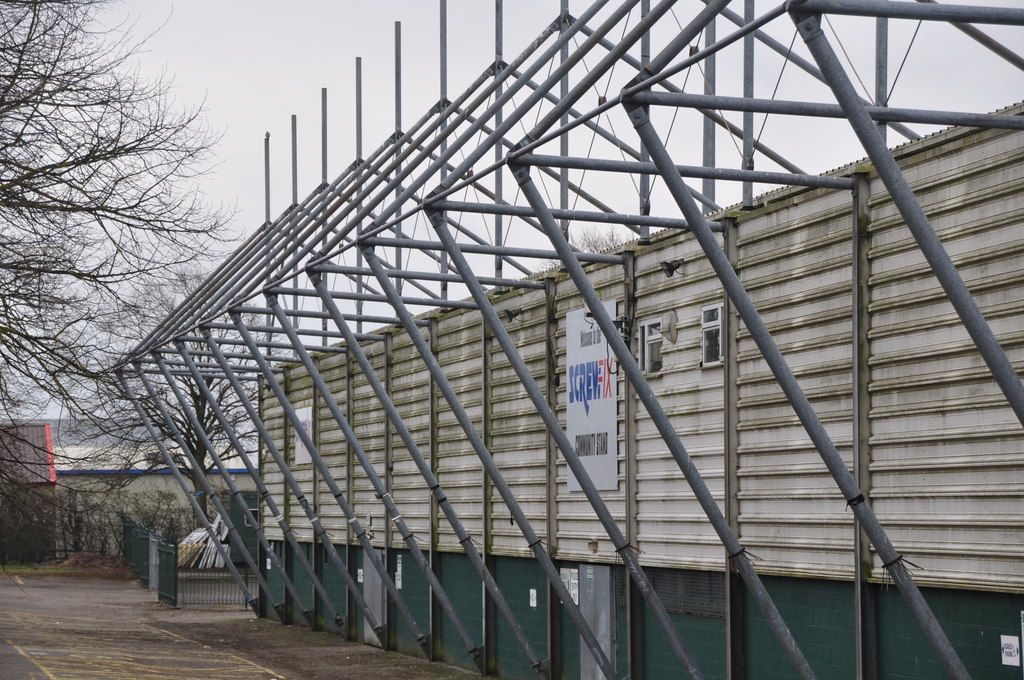
Young generations of football fans have grown up regarding Yeovil as a Football League club, but the truth is that Yeovil have spent 87% of their existence in non-league.
Yeovil’s first season out of the Football League was refreshing. Darren Sarll was appointed manager and assembled a squad that, crucially, reconnected with the fans and finished fourth in his first season in charge which was curtailed due to Covid.
This brought a winning feeling back to Huish Park and it was only the second time since 2007 that Yeovil had finished in the top half of the league.
But with dwindling attendances, and unimaginable challenges to overcome such as the sudden passing of club captain Lee Collins in 2021, Yeovil have now consolidated as a mid-table National League side with 16th and 12th place finishes in their last two seasons.
Sarll was lured away from Somerset by divisional rivals Woking in March 2022 – a stark reminder of how far Yeovil have fallen since being one league away from the Premier League just eight years previously.
The National League is now at its most competitive with only one automatic promotion spot to the EFL. This has resulted in Hollywood actors and millionaire businesspeople throwing millions of pounds at their clubs in the hope they can win promotion to the promised land.
As is the case in football at every level now, it is incredibly difficult to be successful without major financial backing.
When, if ever, will Yeovil Town return to the EFL?
Photo credits:
- Mike Fleming via WikiCommons
- Number 57 via WikiCommons
- Lewis Clarke/geograph.org.uk via WikiCommons
